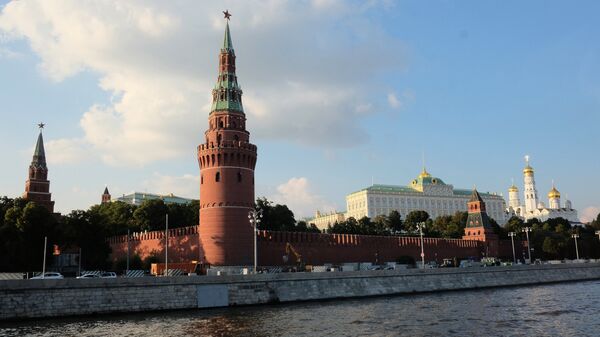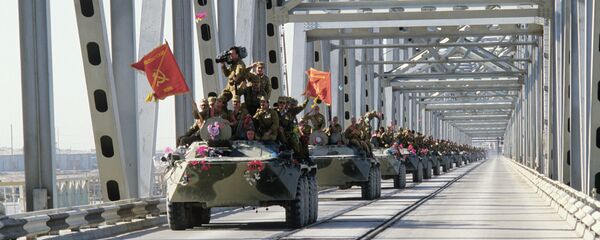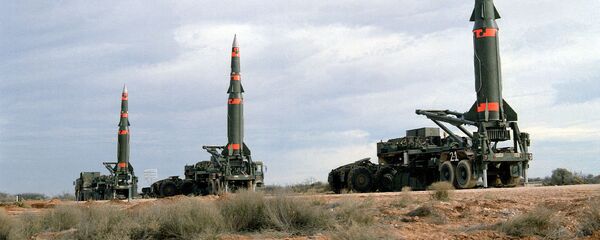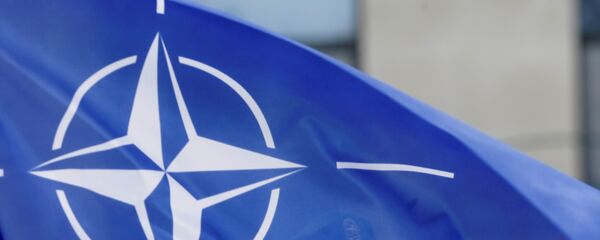The North Atlantic Alliance celebrated its 70th anniversary on 4 April 2019. Exactly 70 years ago, the 12 founding allies met to sign the North Atlantic Treaty in 1949.
"Time and again, Europe and North America have served together under the same flag. For the same cause of freedom and democracy. Deterring the Soviet Union. Bringing stability to the Western Balkans. Fighting terrorism in Iraq and Afghanistan. Changing as the world around us changes", Secretary General Jens Stoltenberg said on 3 April at the reception to celebrate the 70th Anniversary of NATO in Washington.
Although it is widely believed that the bloc was created to counter the USSR and then Russia, the truth of the matter is that Moscow has repeatedly applied for membership in the alliance, seeking to end hostilities once and for all.
Sputnik has taken a look at the Kremlin's efforts to break the Cold War impasse.
1954: Molotov's Plan to Join NATO
The formation of NATO in 1949 was preceded by Winston Churchill's "Iron Curtain Speech" on 5 March 1946 which marked the beginning of the Cold War.
However, in February 1954, the Soviet Union offered its former WWII allies to sign a pan-European collective security treaty at the Berlin Conference of Foreign Ministers. The agreement envisaged consolidating the major principles of the former anti-Hitler coalition, including the United States, France, and the United Kingdom.
When the proposal was abandoned by Western powers, Soviet Foreign Minister Vyacheslav Molotov came up with the idea of joining NATO. Molotov did not have any illusions about NATO's potential response. According to the Soviet foreign minister, a positive answer would have dissolved international tensions, while a rejection to accede the USSR would have exposed the alliance's real attitude towards the Soviet Union.
On 31 March 1954, the Soviet Foreign Ministry sent a request for NATO membership under the condition that the alliance would remain neutral.
On 7 May 1954 the US, UK, and France rejected the Soviet proposal under the pretext that the USSR's membership would be "incompatible" with the military bloc's "democratic and defensive aims".
1983: Andropov's NATO Discussion and Flight 007 Crash
The next attempt to join NATO was mulled over by the Soviet leadership under General Secretary of the Communist Party Yuriy Andropov in the beginning of 1983. Speaking to the Politburo, the principal policymaking committee of the Soviet Communist party, Andropov addressed the issue, citing worsening relations with the People's Republic of China amid the Soviet-Afghan War (1979-1989).
NATO rushed to put all the blame for the incident on the USSR, kicking off a large-scale joint military exercise codenamed Able Archer 83 on 7 November 1983. The drills involved NATO forces throughout Western Europe and lasted for five days, which prompted the Warsaw Pact countries to ready their nuclear arsenals and place air units on alert.
1991: Russia's Membership in NATO as 'Long-Term Political Aim'
Exactly on the day when the USSR ceased to exist, Moscow yet again voiced its intention to join the North Atlantic Treaty Organisation.
The New York Times reported on 21 December 1991 that Russian President Boris N. Yeltsin "wrote to NATO saying Russia hoped to join the alliance some time in the future". The newspaper quoted Yeltsin's letter, which was read at the alliance's headquarters by then Ambassador to Belgium Nikolai N. Afanasyevsky.
"This will contribute to creating a climate of mutual understanding and trust, strengthening stability and cooperation on the European continent", Yeltsin wrote. "We consider these relations to be very serious and wish to develop this dialogue in each and every direction, both on the political and military levels. Today we are raising a question of Russia's membership in NATO, however regarding it as a long-term political aim".
However, Moscow's request was not met. Instead, NATO proposed that Russia join the bloc's Partnership for Peace (PfP) in 1994.
On 27 May 1997, NATO leaders and Moscow inked the NATO-Russia Founding Act, aimed at "build[ing] together a lasting and inclusive peace in the Euro-Atlantic area on the principles of democracy and cooperative security". The same year, former Soviet allies — Poland, Hungary, and the Czech Republic — were invited to NATO at the July 1997 Madrid summit, opening the doors for the bloc's expansion towards Russia's borders.
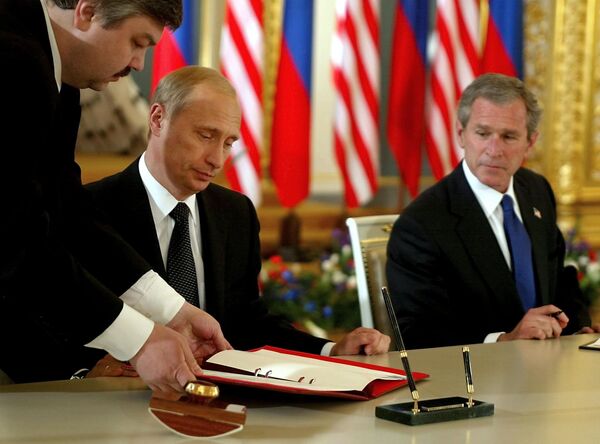
2002 NATO-Russia Council
The last time the Kremlin considered joining NATO was in 2002, under President Vladimir Putin. Following the NATO bombing of Yugoslavia in 1999, relations between Russia and the bloc were at their lowest point. However, the 11 September 2001 tragedy in New York provided an opportunity for the resumption of cooperation and a joint fight against Islamist terrorism for Russia and the military bloc.
On 29 May 2002, then US President George W. Bush met Vladimir Putin in Italy to sign what The Guardian called at that time "an epoch-making agreement which will give Russia a say alongside NATO and bury the cold war forever". The established NATO-Russia Council was "a consensus-based body of equal members".
The Russia-NATO cooperation was overshadowed by the continued NATO enlargement in Eastern and Central Europe: On 29 March 2004, NATO accepted three former Soviet Baltic republics — Estonia, Latvia, and Lithuania — as well as former Warsaw Pact members Bulgaria, Slovakia, Slovenia, and Romania.
Russia's resolute response to Georgia's aggression against the self-proclaimed republics of South Ossetia and Abkhazia in August 2008 led to the suspension of formal meetings of the NATO-Russia Council.
2010: From New Stage of Cooperation to New Low in Relations
Meanwhile, US plans to deploy long-range missile defence interceptors and equipment in Eastern and Central Europe under President Barack Obama added to the erosion of trust between Moscow and the military bloc. Later, the 2014 coup in Ukraine and Crimea's reunification with Russia further deteriorated the situation.
Although the alliance and Russia continue to maintain open military-to-military lines of communication, it appears doubtful that Moscow will apply for NATO membership again any time soon.

